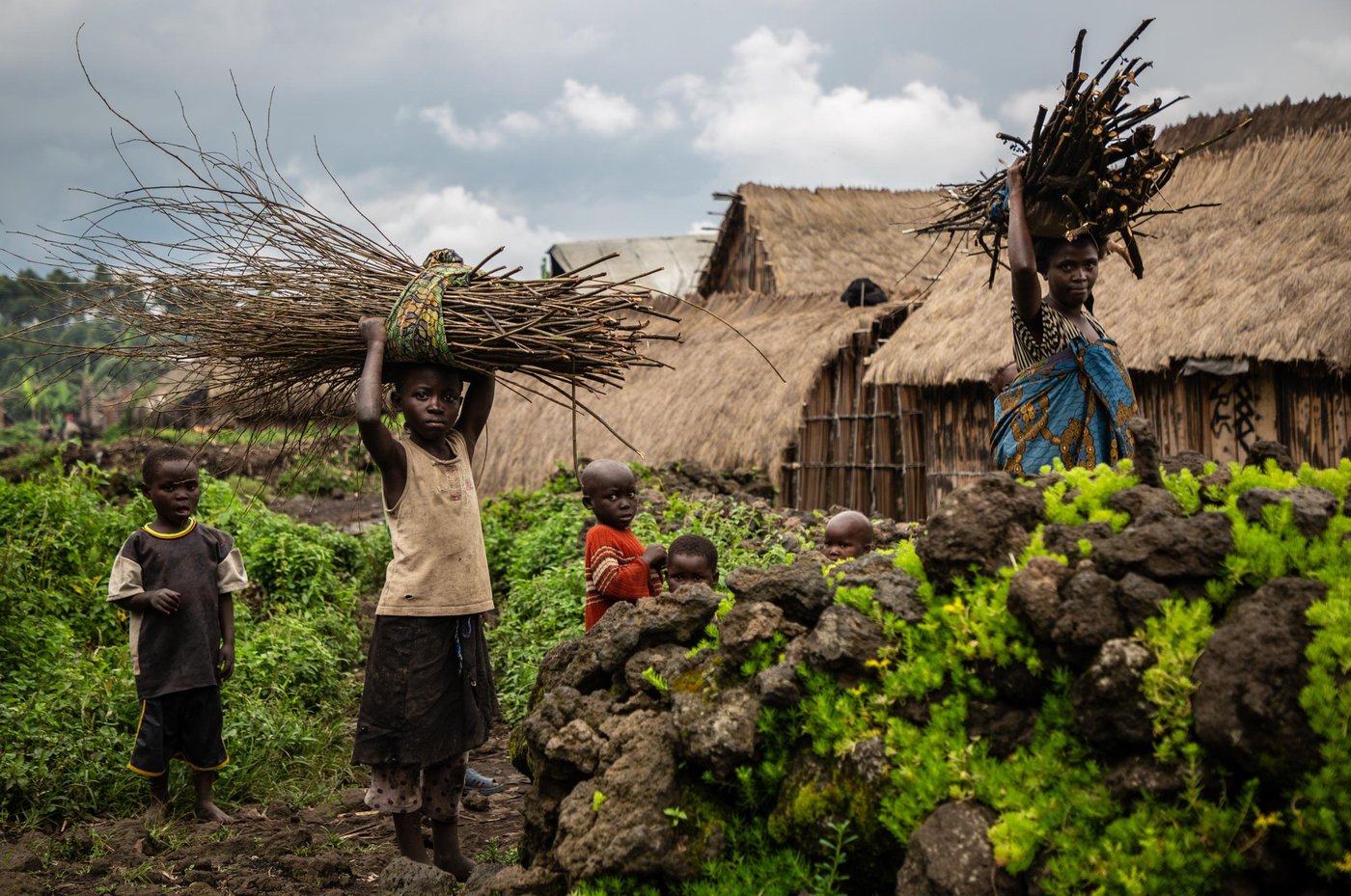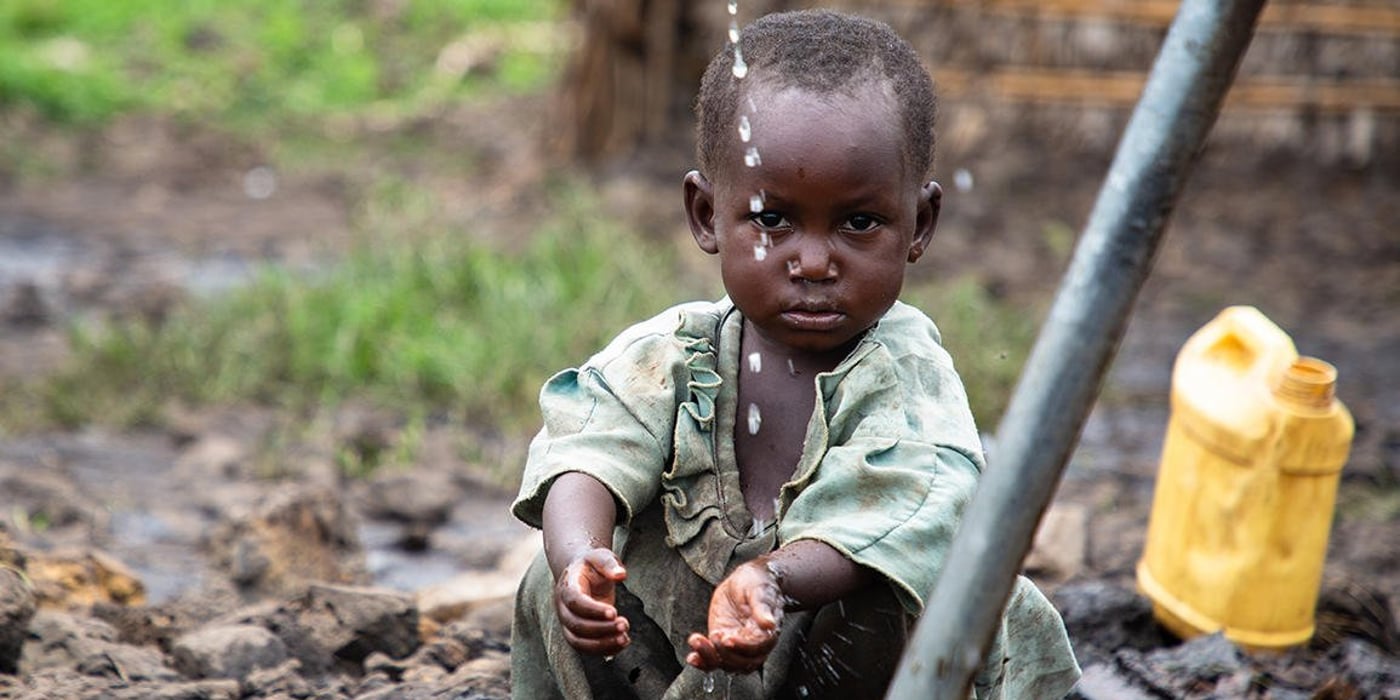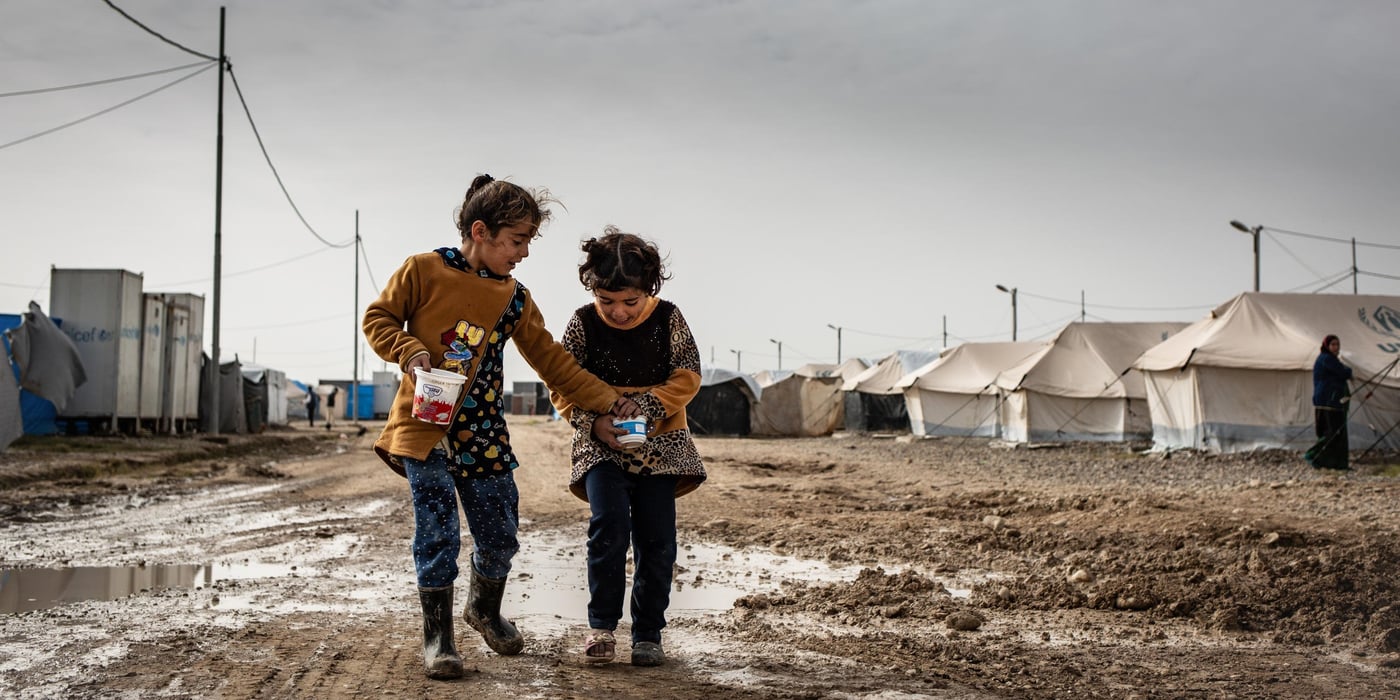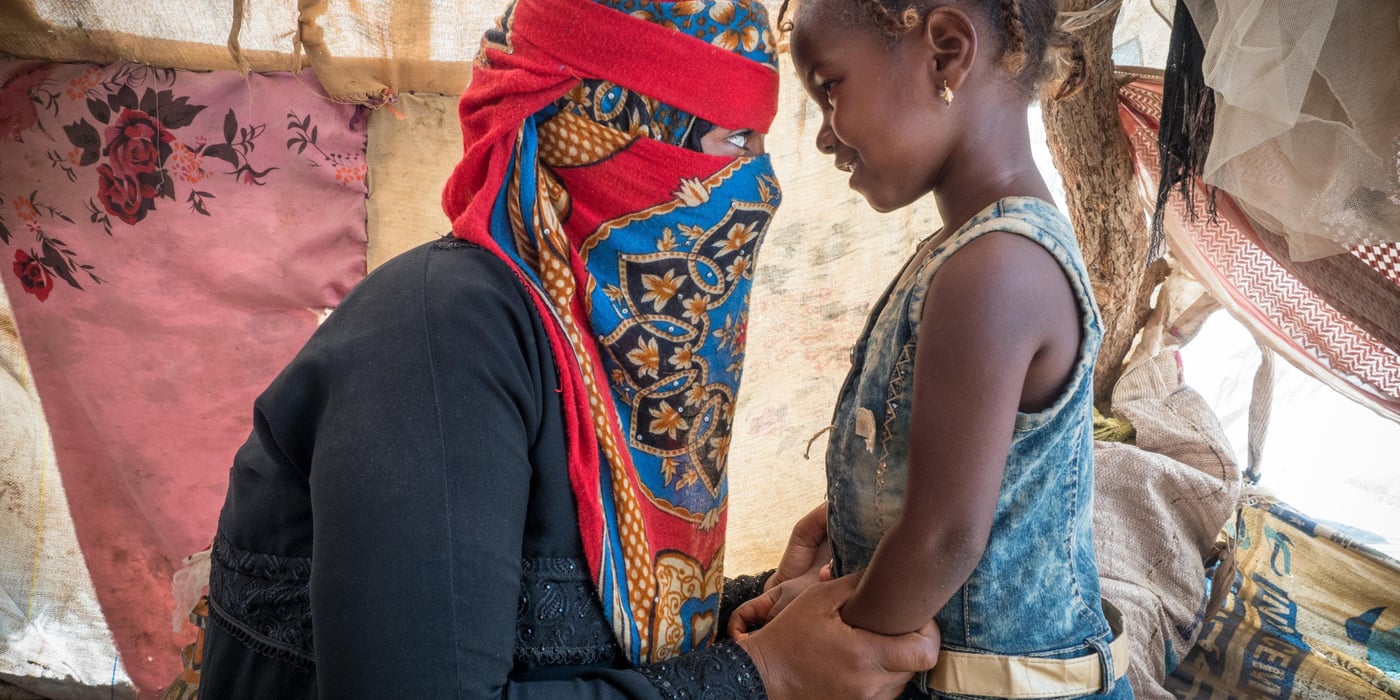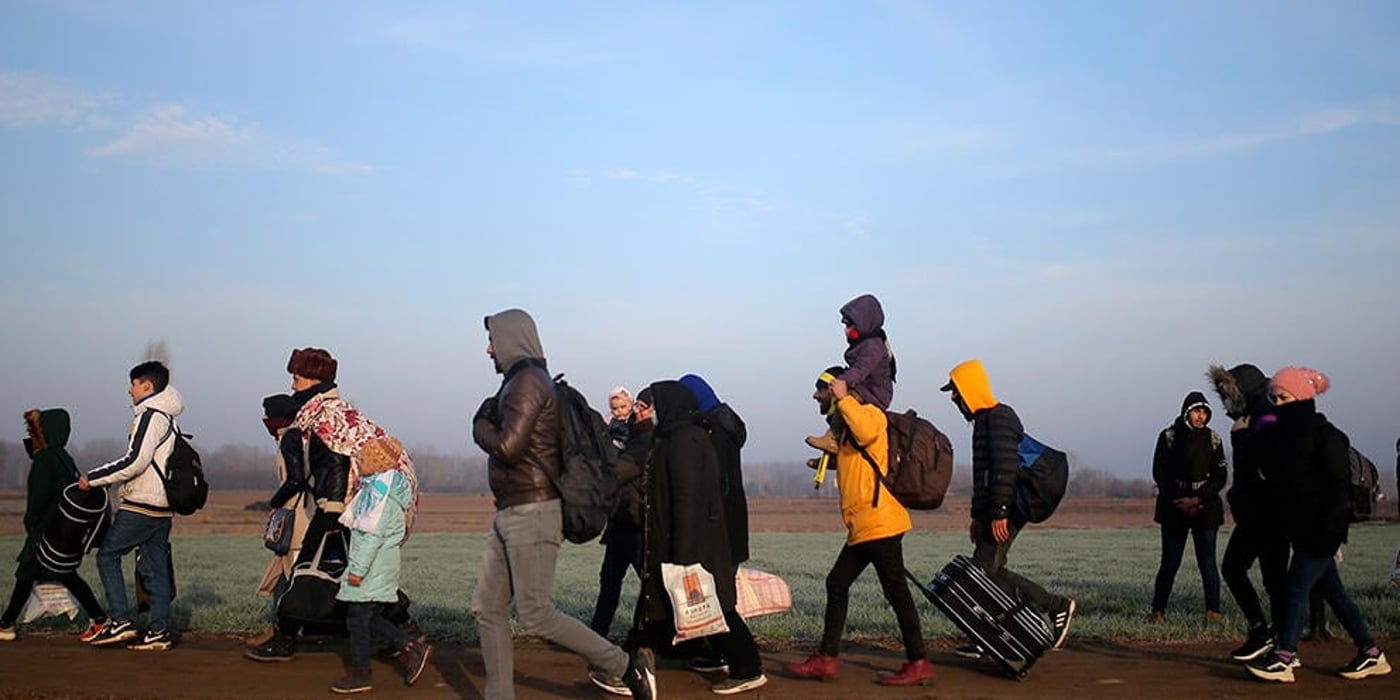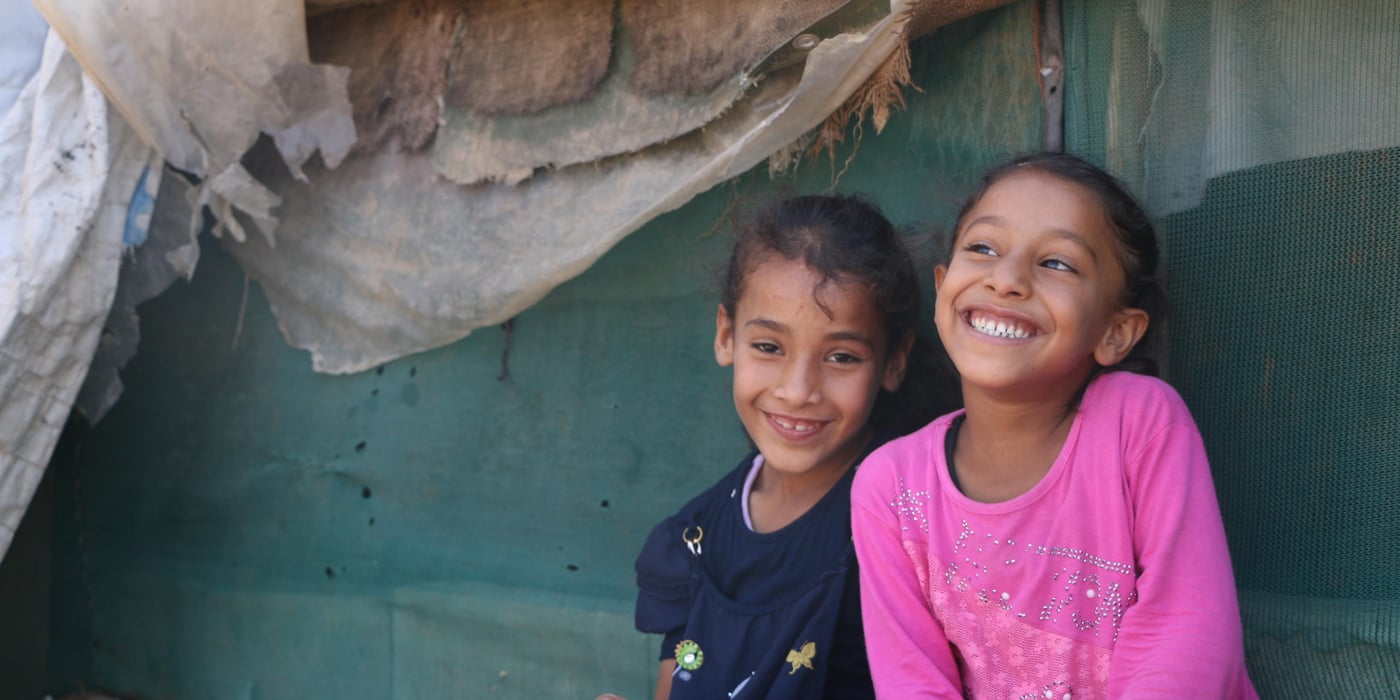But what does it feel like to flee your home? Here, some of the people behind the statistics explain what it’s really like.
Neglected by the rest of the world
“The outside world acts as if it has forgotten us. It’s as if the world sees no value in us,” say Jeanette, a mother in the Democratic Republic of the Congo (DR Congo).
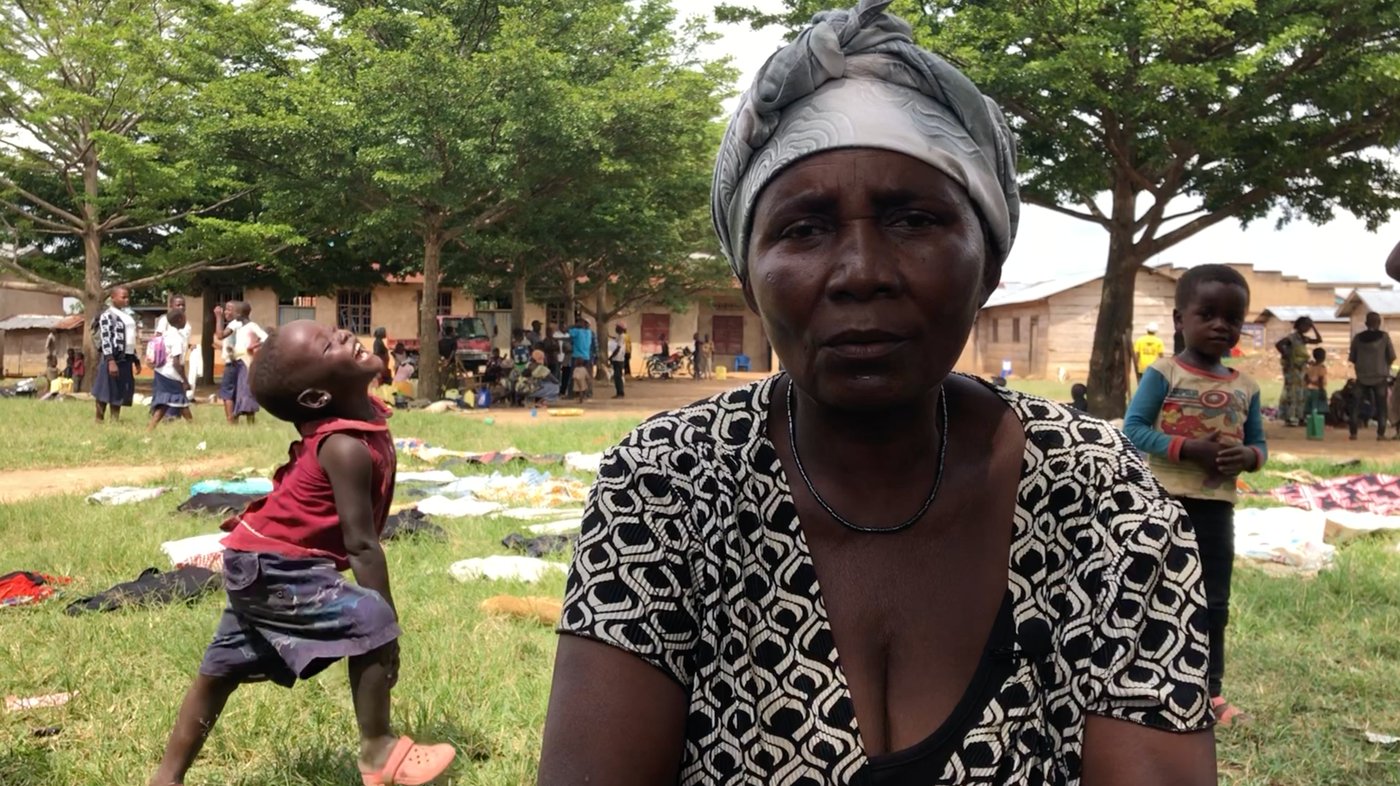
Jeanette fled her village in August last year. She and her family are now living in a school 10 km away. At night, they sleep in the classrooms. In the morning, they must take their belongings outside to allow students to use the school. Jeanette says that she spends her days in the schoolyard.
Her concerns about being forgotten are well founded. DR Congo is the most neglected displacement crisis in the world. The suffering of the people there is largely ignored by the world’s leaders and media. Despite a huge and growing food crisis, many people fail to receive the aid that they need.
“Our situation is unbearable,” Jeanette continues. “If the outside world has any compassion, it must come to help us. We are really living in great suffering.”
Child safety is a constant concern
Imagine being constantly worried about your child’s safety. For parents in Gaza, this is an all-too-familiar feeling. In the recent escalation of violence, some 67 Palestinian children were killed in Israeli airstrikes.
But even in more peaceful times, safety here is precarious. “The situation here is not safe for my children,” says Majdolene, a mother living in southern Gaza. “I do not even feel safe to send my daughters to the grocery shop at the end of the street.”
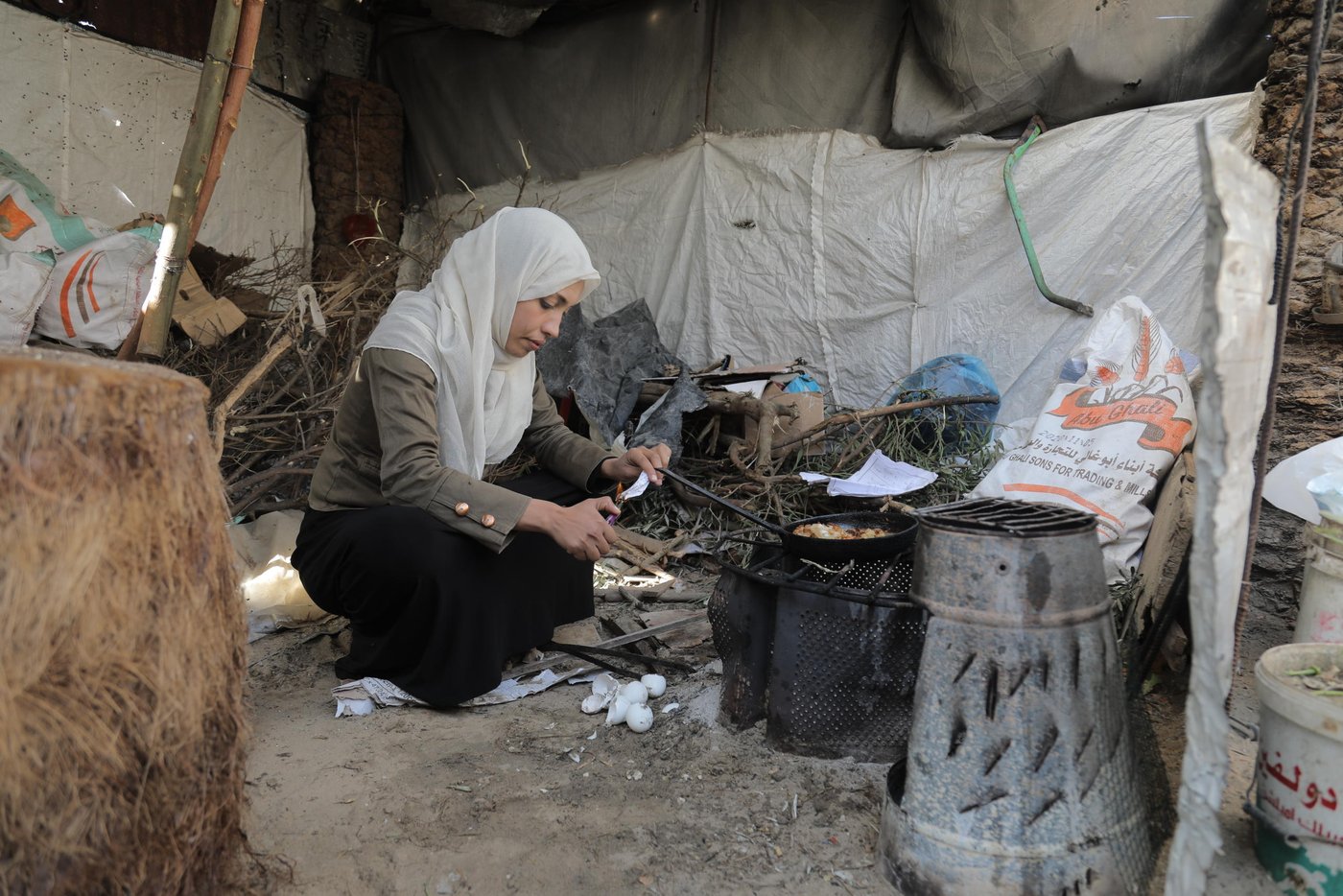
Majdolene, her husband, and three daughters live in the slum neighbourhood of Nahr Al-Bared, in the southern Gaza Strip. To the south of their home is a large informal dumpsite, to the east a cemetery.
“We live by a dumpsite that has rats, other rodents, and scorpions,” says Majdolene. “Life is very difficult. I have small children, my husband is sick, and only God knows how we manage to live.”
“I long to live a dignified life like any other woman, but at the moment, I bear all the responsibility and I feel mentally tired from everything.”
Israel’s siege on Gaza, now entering its 14th year, its recurrent hostilities with Palestinian armed groups, and the internal Palestinian divide have tipped people here into a downward spiral.
Fear of the pandemic
On top of everything else comes a new threat that puts us all at risk: Covid-19.
“We are scared of coronavirus,” says Walid, 12. “We don’t go outside to play, and we don’t go to school.”
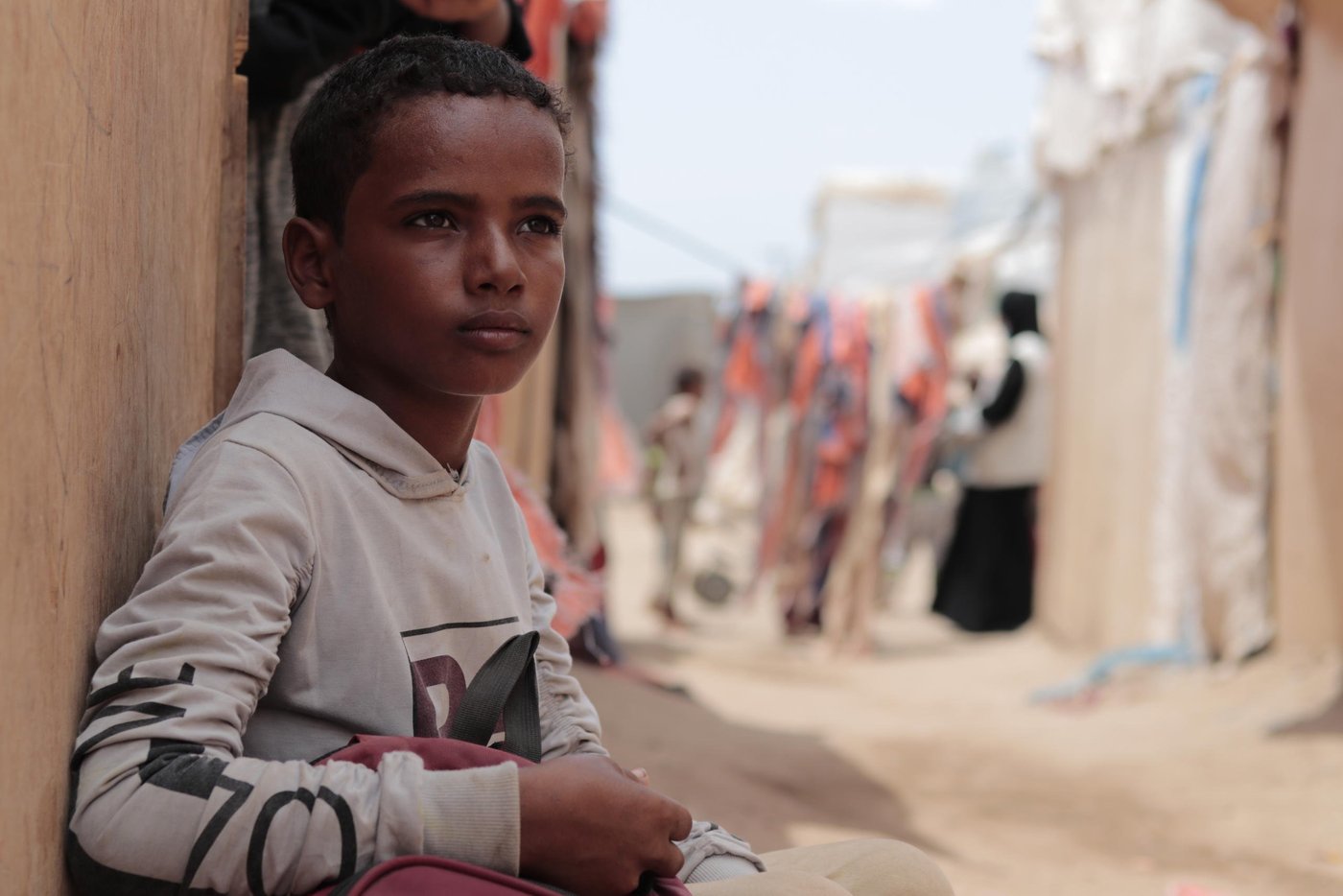
Together with his family, Walid was forced to flee his home in Taiz, Yemen, due to the ongoing conflict. He now lives in a camp for displaced people.
Conditions are crowded and clean water and sanitation are limited. This can make it harder for people living in the camp to feel safe with the threat of the virus.
Before the pandemic, Walid was going to a school built by the Norwegian Refugee Council (NRC) in the camp. But since March 2020, schools in Yemen have been closed nationwide.
“I miss school and hope it reopens. I miss my classmates, teachers, study and going to class. At breaktime, we would sit together. If anyone didn’t have food, we gave them some of ours. If the coronavirus continues, our lives will be worse,” says Walid.

How you can help
Many of us have struggled to cope with lockdown and other Covid-19 restrictions over the past year. But few of us will experience challenges like Jeanette, Majdolene and Walid in our lives.
If you would like to help, there are things you can do. Use your vote, donate to an aid organisation, or help spread the word about the refugee cause. Together we can help to end the displacement crisis.


